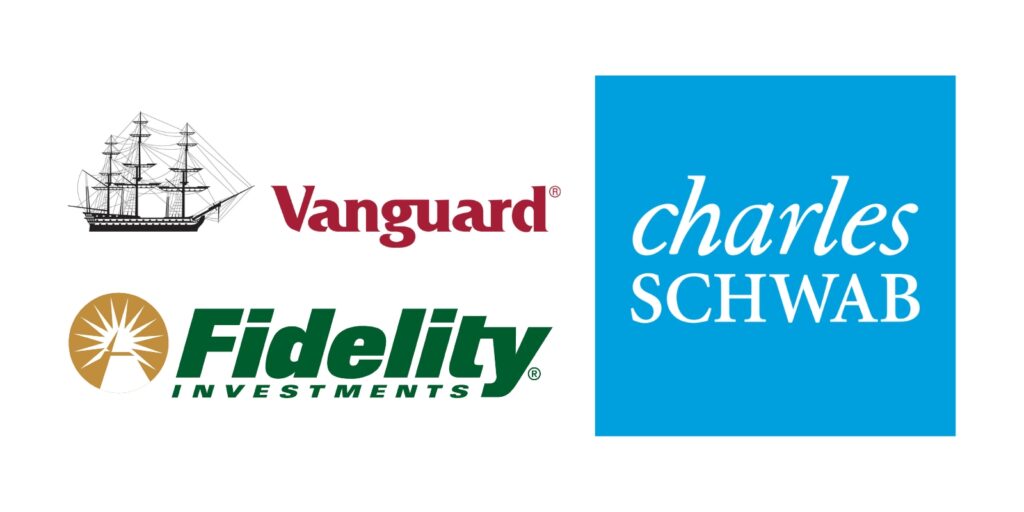What are Index Funds


Flashing stock tickers, sweaty palms, and one too many scenes from The Wolf of Wall Street. For many, the word “investing” goes hand in hand with these fast-paced, anxiety-inducing thoughts rather than financial opportunity. But what if there were a way to invest passively without obsessively checking the market? One that’s low risk and (dare I say) low effort?
Enter: index funds, an investment that automatically buys stocks across a variety of companies for you, without the need to research, buy, and sell individual stocks yourself. In other words, it’s a chill kind of investing with such a positive track record, you’ll want to tell your friends about it.
So unclench that jaw, and get excited, because we’re about to put the fun in index funds…*crickets*
You guys still here?

Investing: Planting Money Seeds
Have you ever planted a seed? With patience and care, it can grow into something bigger that you can enjoy, like a flower or fruit tree.
Investing works the same way. With patience and care, you put your money into assets like stocks, aiming for long-term growth. If those assets grow in value, you can benefit from that profit, like enjoying fresh fruit from a tree you planted.
Investing makes your money work for you, and index funds are one way to do so.

Stocks
Before we bite into index funds, it’s helpful to understand stocks. Stocks represent ownership in a company, and a share is an individual unit of that stock. While the words are often used interchangeably, stocks can refer to any company, while shares are more specific.
For example:
John Doe owns shares of Apple Inc. (more specific)
Jane Doe owns stocks. (less defined)
Shareholders, people who own at least one share in a company, can sell their stock to make a profit if its value has increased, which is the whole appeal of the stock market.
Market Indexes and Index Funds
Shareholders want to know how the stock market is performing, because that influences their investments. Market indexes help investors track how a collection of stocks is performing, like a report card or benchmark for a group of companies.
Individuals can’t invest in a market index, but they can invest in an index fund that mirrors it.
For example, the S&P index fund mirrors the S&P 500 market index, which tracks the performance of the 500 largest publicly traded U.S. companies. So if the S&P 500 market index rises or falls by 2%, the S&P 500 index fund will move by about the same amount.
So rather than buying individual stocks and actively managing each one, investors can use index funds that buy shares of a group of companies.

Stocks vs. Index Funds
Think of it this way!
Imagine you’re at a fruit stand. Buying a single share of a company’s stock is like buying a single red apple. You hope it turns out to be juicy and delicious, but there’s a risk it could be mealy and disappointing. Investing in individual stocks can be rewarding, but it’s riskier since your success hinges on that one stock’s performance.
Instead of investing in just one apple, an index fund is like buying a basket filled with a variety of fruits: apples, oranges, bananas, *insert your favorite fruit here.* Some pieces are perfect, others need time to ripen, and a few might be a little tart. Even if a few fruits underperform, the basket as a whole still provides a satisfying, balanced experience. In investment terms, you’ve diversified your portfolio of stocks, spreading out risk while still enjoying potential growth. How do you like them apples?

Pros of Index Funds
1.)? Passive Investing
Index funds are a form of passive investing, meaning investments are bought and held for the long term rather than actively buying and selling stocks to outperform the stock market. Simply put money into the fund and go about your day, binging the new season of Stranger Things, spending time with loved ones, and doing whatever else you care about more than the stock market! It runs on a hands-off, “set it and forget it” mentality.
2.)? Diversification
Rather than put all your eggs in one basket, index funds spread your money across many stocks within an index. Remember: one apple versus a large fruit basket.
3.)? Cost efficiency
Index funds are cost-effective since they do not require active management that relies on constant research and stock selection. This usually results in lower expense ratios annually charged by the fund, lower trading costs since stocks are not frequently sold or bought, and less capital gains taxes.
4.)? Investment Returns
Since 1957, the S&P 500 has delivered an average annual return of 10.33% The Dow Jones Industrial Average returned 11.3% annually.
The NASdaq Composite returned 15.2% annually.
Now, of course, past performance doesn’t guarantee future results. However, in comparison, the average annual percentage yield for high-yield savings accounts is around 4.2% to 5%, and savings accounts offer 0.4% to 0.6%. In other words, it’s well worth moving some of the money you have in savings to an investment account, specifically a low-risk, low-cost index fund!
5.)? Tax Efficiency
When active fund managers frequently buy and sell investments, those trades can trigger taxable gains. Because index funds are managed passively and involve much less trading, they typically create fewer taxable events.

Cons of Index Funds
1.)? Market Limitations
If you’re looking to be an active, hands-on investor that outperforms the market, index funds won’t do that for you. They don’t beat; they mirror. Investing in individual stocks gives you more potential for higher returns; however, it comes with greater risk and management needs.
One report from S&P Dow Jones found that 89% of fund managers fail to beat the market, so even for professional investors, it’s a beast to tackle. That being said, active management may outperform index funds when the stock market goes down, as they can adjust holdings to potentially reduce losses.
Consider the time, energy, and risk you’re willing to commit to investment ventures before moving forward.
2.)? Lack of Flexibility
There is no flexibility in the stocks that the index fund invests in. You can’t choose which companies the fund invests in, and if a stock is underperforming, the fund manager can’t sell or replace it. In other words, if you want only oranges and not a whole fruit salad, individual stock investing may be more your speed.

How to Invest
To invest in an index fund, you need to open a brokerage account, which is a fancy pants way of saying an account for investments. You do this online through a brokerage, a financial intermediary that connects buyers and sellers for investment transactions. Popular brokerages include Charles Schwab, Fidelity, and Vanguard.
What Brokerage Should I Use?
Different brokerages come with different benefits and downsides. Consider the following factors:
1.)? Investment and account options
Check that the brokerage offers the investment options you want, such as IRAs, index funds, ETFs, mutual funds, stocks, and bonds.
2.)? Expense ratios
When you invest in an index fund, there is typically a small annual fee you’ll have to pay for the fund’s operating and management costs. For example, the Schwab S&P 500 Index Fund has a total expense ratio of 0.02%, which is $2 for every $10,000 invested. The Vanguard 500 Index Admiral Fund (VFIAX) has a ratio of 0.04%, or $4 for every $10,000 invested.
3.)? Fees
Some brokerages charge transaction and annual account service fees. Look on their website for more information before moving forward.
4.)? Minimum Investment Requirements
Brokerages charge different fees to start investing in index funds and other options. For example, Charles Schwab offers index funds with no minimum investment, while Vanguard requires a minimum investment of $3,000.
5.)? Ease of use
Click around on each brokerage’s website or watch platform tutorials on YouTube to explore each setup. You may find you prefer one over the other.
6.)? Educational tools
Most brokerages offer educational tools and resources to help you learn more about your investment options. Still, it is convenient when your brokerage provides materials that make sense to you and demonstrates the desire for users to make smart financial decisions.
7.)? Customer service
Investing is a big deal, and having people to help you when you are confused about the status of your accounts can be a game-changer, especially for beginners.
8.)? Reputation
You want to use a brokerage that is well-known and offers protection for your money. Verify the brokerage with the Securities Investor Protection Corporation (SIPC) list of registered brokers or dealers.

How Much Should I Invest In an Index Fund?
Beyond minimum investment requirements, how much to invest in an index fund varies widely by person.
Here’s an example:
- Initial investment: $3,000.
- Years of investment growth: 30 years
- Estimated rate of return: 10%
- Compound frequency: Annually
- Amount of monthly recurring investments: $100
With these conditions, you could have a total balance of $258,632.54 in 30 years. Increase that recurring investment to $500 a month, and you’re looking at $1,083,769.86.
Mess around with this investment calculator to find a plan that works for you!
Other Options: Money Market Accounts
Still unsure about investing? While it’s not an investment account, money market accounts are one step above a regular savings account, offering higher interest rates for long-term growth.
1166 Federal Credit Union recently launched Money Market Plus, our latest money market account offering with our highest money market rate and the lowest required minimum deposit.
- 3.00% Annual Percentage Yield (APY*)
- 2 free withdrawals monthly***
- Minimum deposit of $2,500 to earn APY
Money Market Plus accounts are only available for new money, or funds that have not been on deposit with 1166 Federal Credit Union in the last 30 days.***
Learn more about our money market accounts, and contact us today to get started!
Disclaimers:
*APY = Annual Percentage Yield. 3.00% APY is accurate as of July 28, 2025, and subject to change at any time.
**Up to two free withdrawals per month without penalty, with additional withdrawals incurring a $25 charge per occurrence. Penalty fees may reduce earnings.
*** Transfers from existing 1166 FCU accounts alone do not qualify.
1166 Federal Credit Union
Contact Us: Browse our website for more information or contact us at 856-542-9241 to speak to a member of our team. You can also find 1166 on Social Media here:
Instagram: https://www.instagram.com/1166fcu/
Facebook: https://www.facebook.com/1166fcu.org
LinkedIn: https://www.linkedin.com/company/99499168/admin/feed/posts/
Twitter/X: https://twitter.com/1166FCU?ref_src=twsrc%5Egoogle%7Ctwcamp%5Eserp%7Ctwgr%5Eauthor




